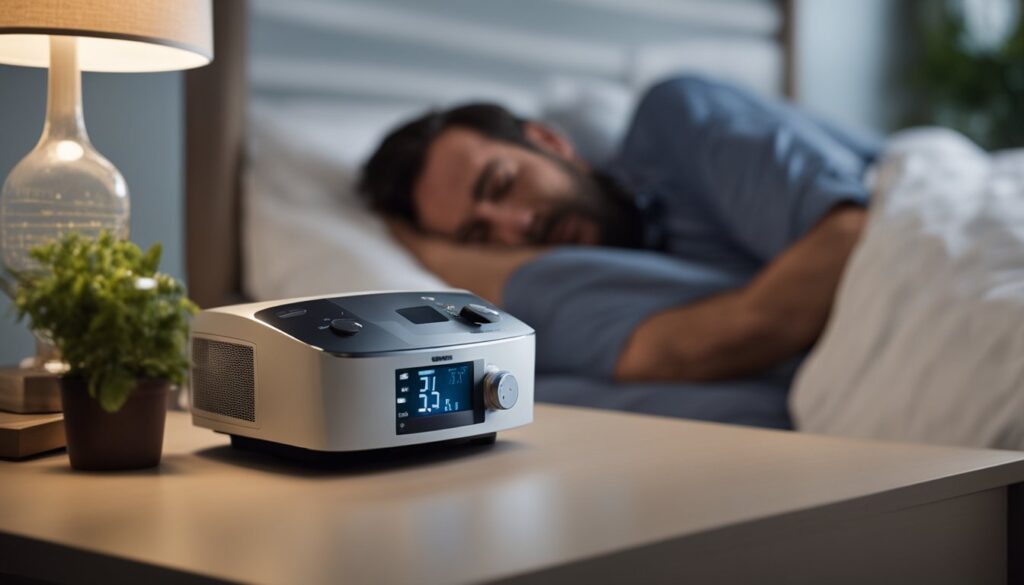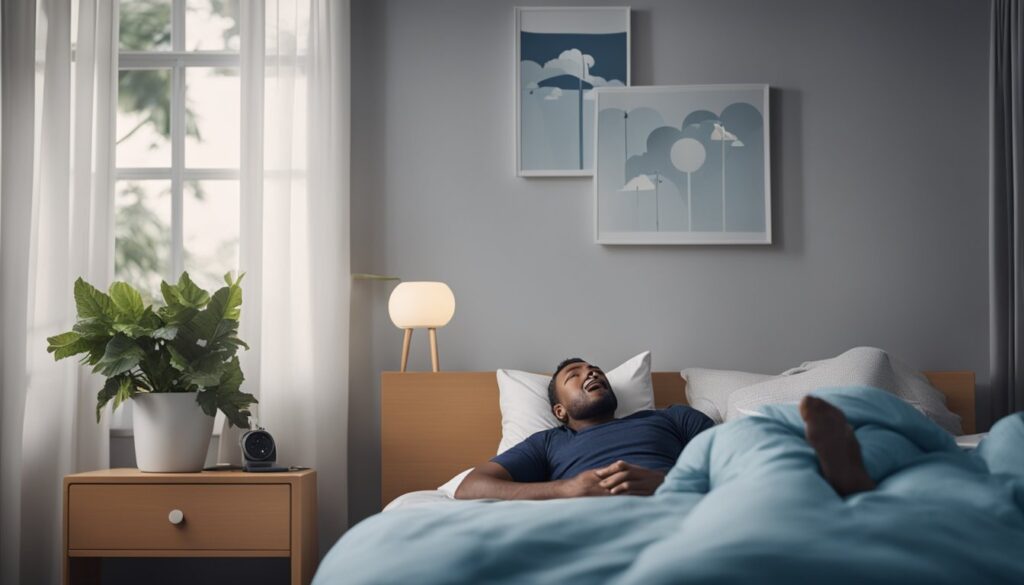Sleep apnea is a sleep disorder where your breathing repeatedly stops and starts as you sleep. It’s a serious condition that can lead to significant health problems if left untreated. Recognizing the symptoms of sleep apnea is the first step in getting help. Common signs include loud snoring, episodes of stopped breathing observed by another person, and abrupt awakenings accompanied by shortness of breath.

If you experience frequent morning headaches, a sore throat upon awakening, or a dry mouth, these may also be clear indications of sleep apnea. Fatigue is another common symptom, often due to disturbed sleep causing excessive daytime sleepiness, which can impact your daily life. It’s critical to take note of these symptoms as they may suggest the need to consult a doctor for a proper diagnosis.
It’s important to not dismiss snoring as simply a nuisance. If snoring is accompanied by choking or gasping sounds, it’s a signal that your breathing is being obstructed during sleep. Pay attention to how you feel during the day; are you experiencing irritability, attention problems, or are you often waking up with a headache? These are potential signs that you might be dealing with sleep apnea. If you recognize any of these symptoms, consider discussing them with your doctor to explore diagnostic methods and treatment options.
Recognizing Sleep Apnea

Your ability to identify the signs of sleep apnea can be crucial for seeking timely medical attention. Sleep apnea is more than just heavy snoring; it’s a serious health condition that can greatly impact your quality of life.
Common Symptoms
When considering whether you might have sleep apnea, be mindful of several common symptoms:
- Loud Snoring: Typically, the most noticeable sign, but not everyone who snores has sleep apnea.
- Episodes of Gasping or Choking: These could indicate that your breathing is being obstructed during sleep.
- Dry Mouth upon Awakening: Waking up with a dry mouth regularly could be a symptom.
- Morning Headaches: Consistent headaches right after waking up may be related to sleep apnea.
- Daytime Sleepiness: Excessive tiredness despite a full night’s sleep is another key sign.
- Restless Sleep: Frequent awakenings or tossing and turning could be a sign.
- Remember, these symptoms often occur together, amplifying the need for a professional evaluation.
Types and Differences
There are different types of sleep apnea with distinct characteristics:
- Obstructive Sleep Apnea (OSA): This type is due to a physical blockage, usually the collapsing of the soft tissue at the back of the throat. Signs include loud snoring with periods of silence when airflow is reduced or blocked.
- Central Sleep Apnea (CSA): This less common form involves the brain failing to signal the muscles to breathe, due to instability in the respiratory control center. Breath stoppage is typically quieter in these instances.
- Complex Sleep Apnea Syndrome: Also known as treatment-emergent central sleep apnea, occurs when someone has both obstructive sleep apnea and central sleep apnea.
It’s important to note the symptoms of sleep apnea can overlap with other conditions, making a precise diagnosis crucial for effective treatment. If you experience these symptoms, especially loud snoring coupled with periods of gasping or choking, consider seeking medical advice.
Risk Factors and Complications

Understanding the risk factors associated with sleep apnea is essential as they can significantly increase your chance of complications. Identifying these risks early can help in managing or preventing the progression of this condition.
Contributing Conditions
Obstructive Sleep Apnea (OSA): Your risk of OSA increases if you have excess weight as fat deposits around your upper airway can obstruct breathing.
Central Sleep Apnea: Unlike OSA, central sleep apnea isn’t about a physical blockage. It occurs because your brain doesn’t send proper signals to the muscles controlling breathing.
Nasal Congestion: If you have difficulty breathing through your nose due to an anatomical problem or allergies, you are more likely to develop sleep apnea.
Potential Health Risks
Sleep apnea does more than just interrupt sleep; it can lead to serious health complications:
- High Blood Pressure: Your body gets stressed when you frequently wake up at night, which can boost your blood pressure levels.
- Heart Disease: OSA is associated with the risk of heart disease, heart attack, and stroke due to the sudden drops in blood oxygen levels during apneas.
- Diabetes: Sleep apnea is linked with insulin resistance and may increase your risk of type 2 diabetes.
Lifestyle factors such as alcohol consumption and smoking may exacerbate symptoms and increase the severity of complications.
Importance of Timely Diagnosis
The sooner you get diagnosed, the quicker you can manage sleep apnea, which can reduce your risk of health complications. For instance, regulating factors like age and excess weight can make a significant difference. Remember, while you can’t control aging, you can adopt a healthier lifestyle to mitigate its impact on sleep apnea. Early intervention can also minimize the risk of developing chronic conditions like high blood pressure or heart disease, which are often correlated with untreated sleep apnea.
Frequently Asked Questions

In this section, you’ll find precise answers to common inquiries regarding sleep apnea, its diagnosis, management strategies, and the importance of recognizing less evident symptoms.
How can sleep apnea be diagnosed?
To diagnose sleep apnea, your doctor may recommend a sleep study called polysomnography, which records brain waves, oxygen levels, heart rate, and breathing during sleep. For convenience, a home sleep apnea test might also be suggested.
Is there a possibility of curing sleep apnea?
Treatment can effectively manage sleep apnea, but a complete cure varies depending on the cause. Weight loss, lifestyle changes, and use of continuous positive airway pressure (CPAP) devices can greatly reduce symptoms. For some, surgical options may be explored.
What are some less obvious indicators of sleep apnea?
Apart from the well-known symptom of loud snoring, less obvious indicators include awakening with a dry mouth, morning headaches, and experiencing mood swings or irritability.
What are the consequences of untreated sleep apnea?
Untreated sleep apnea may lead to severe health complications such as heart damage and heart failure. It is also associated with a higher risk of high blood pressure, stroke, and diabetes.
How is sleep apnea fatigue characterized?
Fatigue related to sleep apnea is often described as a persistent sense of tiredness or extreme daytime drowsiness, which usually results from disrupted sleep patterns.
What are the risks of stopping breathing during sleep?
When breathing repeatedly stops during sleep, it can cause abrupt awakenings along with a diminished oxygen supply to vital organs. Over time, this can result in irregular heartbeat and increase the danger of heart-related conditions.